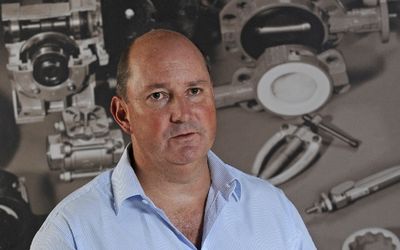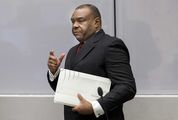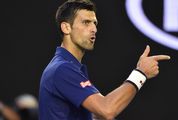Source:

Invicta: Times are tough but it’s too early to give up hope
by Stafford Thomas,
2016-03-09 12:27:59.0
INVICTA, once a firm market favourite, has dived to a 6 p:e, all but a third of its level 15 months ago. It is a derating that should alert small-cap bargain hunters.
Invicta is not alone in its relegation to ex-growth status. Punishment has also been dished out to Hudaco, and others, by investors running scared of industrial companies perceived to be held ransom by the domestic economy.
Not that the going is easy. Invicta CEO Charles Walters is the first to concede this. "We are facing the perfect storm," he says.
Invicta’s two core divisions, Bearing Man Group (BMG) and Capital Equipment Group (CEG), find themselves hit by this storm. BMG is taking a buffeting from the manufacturing and mining slump and the drought has hit CEG, SA’s largest agricultural equipment distributor.
Walters says: "Conditions are worse than we experienced during the [2008-2009] recession. I see this continuing for 18 to 36 months."
Invicta is not waiting to be overwhelmed. "We are right-sizing as needed and cutting costs," says Walters. Reflecting this, Invicta’s cost of sales lifted a mere 0.2% in the six months to September.
Under tough conditions Invicta is "holding up well," says chairman Christo Wiese, who, with a 36% stake, is Invicta’s biggest shareholder. "Our half year results were no train smash."
However, the results followed a major capital restructuring concluded in early 2015 and were potentially confusing. The capital restructuring saw a R1.5bn special dividend paid and R2.25bn raised through a rights issue which upped the number of shares in issue by 45%.
The jump in issued shares left Invicta’s interim headline EPS (HEPS) looking, as Walters puts it, "like a disaster" at 34% down year on year. "Providing a more realistic take on results, normalised HEPS were down a far lower 7%.
The rights issue was executed at twice Invicta’s current R38/share and, net of the special dividend, bolstered its balance sheet by R750m. It helped reduce net gearing from 38% to 22% of shareholders’ funds. Walters says Invicta is working to cut debt.
It positions Invicta to make a sizeable acquisition at a time when, as noted in its interim results presentation, many BMG competitors are "distressed and increasingly desperate".
But Invicta is likely to confine itself to modest acquisitions, of which BMG completed three at a cost of some R100m during the six months to September.
Bigger things could be in store offshore. Invicta’s objective is to earn more than 50% of profits offshore by 2020, against some 11% at present. The biggest contributor is Singapore-based Kian Ann, one of South East Asia’s largest distributors of earthmoving equipment parts and diesel engine spares.
An initial 75% was acquired in Kian Ann in 2012 for R1.36bn with the remaining 25% mopped up in October 2014.
"Our timing was wrong. The commodity cycle was starting to turn down [in 2012]," says Walters. "Earnings have not met our expectations but unlike many of its competitors, Kian Ann is profitable. We are also taking steps to diversify Kian Ann away from its traditional markets in China, Indonesia and Malaysia."
Invicta remains on the hunt for an offshore acquisition that will move the group’s earnings needle. When it comes it will probably be funded through a foreign secondary listing.
What Invicta first needs is a solid acquisition to take to foreign investors. Walters says: "We are hoping for positive news soon."
If it comes, Invicta will go to the appropriate stock market. "It could be Singapore, Hong Kong or even London but is unlikely to be a US market," says Walters.
While there is little doubt that Invicta will report another poor set of numbers in its full year to March, to write it off as ex-growth would be foolhardy.

Charles Walters. Picture: FINANCIAL MAIL
INVICTA, once a firm market favourite, has dived to a 6 p:e, all but a third of its level 15 months ago. It is a derating that should alert small-cap bargain hunters.
Invicta is not alone in its relegation to ex-growth status. Punishment has also been dished out to Hudaco, and others, by investors running scared of industrial companies perceived to be held ransom by the domestic economy.
Not that the going is easy. Invicta CEO Charles Walters is the first to concede this. "We are facing the perfect storm," he says.
Invicta’s two core divisions, Bearing Man Group (BMG) and Capital Equipment Group (CEG), find themselves hit by this storm. BMG is taking a buffeting from the manufacturing and mining slump and the drought has hit CEG, SA’s largest agricultural equipment distributor.
Walters says: "Conditions are worse than we experienced during the [2008-2009] recession. I see this continuing for 18 to 36 months."
Invicta is not waiting to be overwhelmed. "We are right-sizing as needed and cutting costs," says Walters. Reflecting this, Invicta’s cost of sales lifted a mere 0.2% in the six months to September.
Under tough conditions Invicta is "holding up well," says chairman Christo Wiese, who, with a 36% stake, is Invicta’s biggest shareholder. "Our half year results were no train smash."
However, the results followed a major capital restructuring concluded in early 2015 and were potentially confusing. The capital restructuring saw a R1.5bn special dividend paid and R2.25bn raised through a rights issue which upped the number of shares in issue by 45%.
The jump in issued shares left Invicta’s interim headline EPS (HEPS) looking, as Walters puts it, "like a disaster" at 34% down year on year. "Providing a more realistic take on results, normalised HEPS were down a far lower 7%.
The rights issue was executed at twice Invicta’s current R38/share and, net of the special dividend, bolstered its balance sheet by R750m. It helped reduce net gearing from 38% to 22% of shareholders’ funds. Walters says Invicta is working to cut debt.
It positions Invicta to make a sizeable acquisition at a time when, as noted in its interim results presentation, many BMG competitors are "distressed and increasingly desperate".
But Invicta is likely to confine itself to modest acquisitions, of which BMG completed three at a cost of some R100m during the six months to September.
Bigger things could be in store offshore. Invicta’s objective is to earn more than 50% of profits offshore by 2020, against some 11% at present. The biggest contributor is Singapore-based Kian Ann, one of South East Asia’s largest distributors of earthmoving equipment parts and diesel engine spares.
An initial 75% was acquired in Kian Ann in 2012 for R1.36bn with the remaining 25% mopped up in October 2014.
"Our timing was wrong. The commodity cycle was starting to turn down [in 2012]," says Walters. "Earnings have not met our expectations but unlike many of its competitors, Kian Ann is profitable. We are also taking steps to diversify Kian Ann away from its traditional markets in China, Indonesia and Malaysia."
Invicta remains on the hunt for an offshore acquisition that will move the group’s earnings needle. When it comes it will probably be funded through a foreign secondary listing.
What Invicta first needs is a solid acquisition to take to foreign investors. Walters says: "We are hoping for positive news soon."
If it comes, Invicta will go to the appropriate stock market. "It could be Singapore, Hong Kong or even London but is unlikely to be a US market," says Walters.
While there is little doubt that Invicta will report another poor set of numbers in its full year to March, to write it off as ex-growth would be foolhardy.





















Change: 1.19%
Change: 1.36%
Change: 2.19%
Change: 1.49%
Change: -0.77%
Data supplied by Profile Data
Change: -0.08%
Change: 0.12%
Change: 1.19%
Change: 0.00%
Change: 0.10%
Data supplied by Profile Data
Change: 0.32%
Change: 0.39%
Change: 0.40%
Change: 0.22%
Change: 0.58%
Data supplied by Profile Data
Change: 0.09%
Change: -0.41%
Change: -0.06%
Change: -0.33%
Change: 0.10%
Data supplied by Profile Data